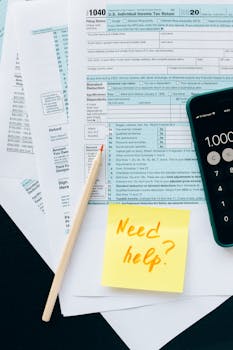In South Africa, individuals and businesses alike are often overwhelmed by the complexities of finances. Many may underestimate the importance of keeping systematic financial records. However, organized documentation is a critical component for success. By managing financial records effectively, you can enhance budgeting, streamline tax processes, and plan for emergencies.
Effective record-keeping not only simplifies your financial life but also builds a solid foundation for your monetary decisions. When your documents are organized, they provide clarity and peace of mind. This article explores why maintaining financial records is paramount and how it can benefit you in the long term.
Establishing a sound method for documenting financial transactions allows for better management of funds and resources. From keeping tabs on expenses to preparing for unforeseen emergencies, the significance of organized financial records cannot be overstated. Hence, let’s delve deeper into the various aspects of financial documentation and its importance.
The Importance of Organized Financial Records
Organized financial records are crucial for both personal and business finances. By keeping systematic records, you ensure that you know exactly how much money you have. This knowledge can prevent overspending and encourage mindful spending habits.
Moreover, having clear records allows individuals and businesses to spot trends in their financial activity. Recognizing spending habits can lead to smarter budgeting decisions. Over time, these adjustments can lead to significant savings.
Another advantage of organized records is their role in tax preparation. Tax season can be stressful, but with well-kept documents, filing becomes much easier. You can quickly reference the necessary data without searching through piles of paperwork.
Additionally, organized records also promote compliance with local laws and regulations. In South Africa, strict tax laws require accurate reporting. Being organized helps in maintaining compliance, avoiding potential legal problems.
Finally, documentation serves as a future financial reference. When assessing past expenditures, having a clear record can provide necessary insights into spending behaviors. This information supports better decision-making in the future.
Budgeting Made Easier
Budgeting is a fundamental aspect of managing finances effectively. Organized financial records simplify the budgeting process significantly. You can easily track your income and expenses without confusion, leading to informed choices.
Additionally, with organized records, you can set realistic budget goals based on historical data. Referencing your past spending patterns allows you to allocate funds more wisely. This accuracy is pivotal for reducing unnecessary expenses.
Incorporating budgeting tools becomes much more manageable with clear documentation. Savvy tracking options can be integrated, fostering a more engaged approach. You’ll likely find yourself more motivated to stick to your budget.
Regularly reviewing your budget against organized financial records enhances accountability. When you can see where your money is going, you become more responsible with spending. This accountability fosters a sense of ownership over your financial choices.
Furthermore, organized records offer a quick reference point for discussions about financial goals. If you’re planning for short-term and long-term objectives, having clear documentation supports these conversations effectively. You’ll be better positioned to make commitments based on solid data.
Streamlining Tax Preparation
Tax preparation often presents challenges for many individuals and businesses. However, organized financial records can ease this burden significantly. With accurate documentation, tax filing processes become much smoother.
Having your financial documents organized means that you can easily compile the necessary paperwork for tax forms. You minimize the risk of missing essential documents, which can lead to penalties. This efficiency not only saves time but also reduces stress.
Furthermore, accurate record-keeping ensures that you claim all eligible deductions. Many people miss out on potential savings simply because they lack the proper documentation. Detailed records help you identify eligibility, ultimately lowering your tax bill.
In South Africa, tax laws can be quite intricate; thus staying informed is crucial. Organized records allow you to track changes in your tax obligations effectively. You can navigate tax changes with precision and awareness.
Lastly, having well-organized records makes it easier to engage with tax professionals when needed. Whether for annual filing or consultations, you’ll be prepared to provide the relevant documentation promptly. This preparation fosters a smoother working relationship with financial advisors.
Emergency Planning
Planning for emergencies is vital in today’s unpredictable climate. One of the first steps in preparing for uncertain situations is maintaining organized financial records. These records help formulate a clear understanding of your financial position.
In case of emergencies, access to your financial documents can be a lifeline. Whether you face job loss, healthcare crises, or natural disasters, knowing your financial limits can inform sound decisions. This preparedness is key for mitigating risks.
Moreover, having a clear overview of your finances enables you to allocate resources effectively during emergencies. With organized documentation, you can prioritize your spending and take control in stressful situations.
Furthermore, maintaining records of insurance policies is vital for effective emergency planning. In times of crisis, having access to these documents can expedite claims and provide vital support. This organization minimizes delays at crucial moments.
Overall, organized financial records provide reassurance in the face of adversity. You gain confidence in your ability to manage unexpected challenges and devise effective contingency plans. This clarity can significantly benefit your peace of mind.
Building Financial Literacy
Maintaining organized financial records contributes to building financial literacy over time. Engaging actively with your finances enhances your understanding, empowering you to navigate monetary concerns. The more educated you become, the better your decisions will be.
By regularly reviewing your records, you’re much more informed about your financial health. Having insights into income sources, expenses, and savings can redirect your financial strategies. This continual analysis fosters personal growth in financial management.
Additionally, understanding your financial data allows you to compare various financial products. With your organized records at hand, you can make informed choices regarding loans, investments, and savings accounts. This knowledge enables you to select options that align with your goals.
Being financially literate makes it easier to engage in discussions about investment strategies. You can consult knowledgeable sources for advice that aligns with your documented financial situation. This dialogue is crucial for effective financial planning.
Ultimately, organized financial records serve as a catalyst for enhancing financial education. The more you engage with your documentation, the more confident you will feel managing your finances. This journey boosts your overall financial well-being.
Tips for Effective Financial Record Keeping
To achieve organized financial records, consider implementing a few practical tips. Start by easily accessible financial software or apps. These tools simplify tracking expenses and incomes automatically, saving you time.
Next, establish a regular schedule for reviewing and updating your records. Setting aside time weekly or monthly ensures nothing slips through the cracks. Consistent attention maintains clarity and keeps your records current.
Additionally, create a filing system for both digital and physical records. Categorize documents by type, such as banking, receipts, or tax forms. An organized structure makes it easy to find what you need without unnecessary stress.
Consider regularly purging unnecessary paperwork as well. This process helps maintain an uncluttered environment, allowing for better focus on important documents. Always keep records that are critical for taxes or legal requirements.
Lastly, educate yourself on best practices for financial documentation. Numerous resources are available that can guide you through effective strategies. This knowledge ensures you remain proactive in managing your financial records.
Conclusion
Keeping financial records may seem like a mundane task, but its importance is profound. Organized documentation fosters efficient budgeting, streamlines the tax process, and aids in emergency planning. It also contributes to building financial literacy over time, enhancing your decision-making capabilities.
By prioritizing record-keeping, you take proactive steps toward maintaining a healthy financial life. The invaluable insights gained from your records empower you to make informed decisions. Thus, investing time in organizing your financial documentation is an essential practice.
In conclusion, never underestimate the power of organized financial records. Embrace these practices to enhance your financial future, making it secure and manageable. Ultimately, this diligence pays off, providing both peace of mind and flexibility in managing your finances.

